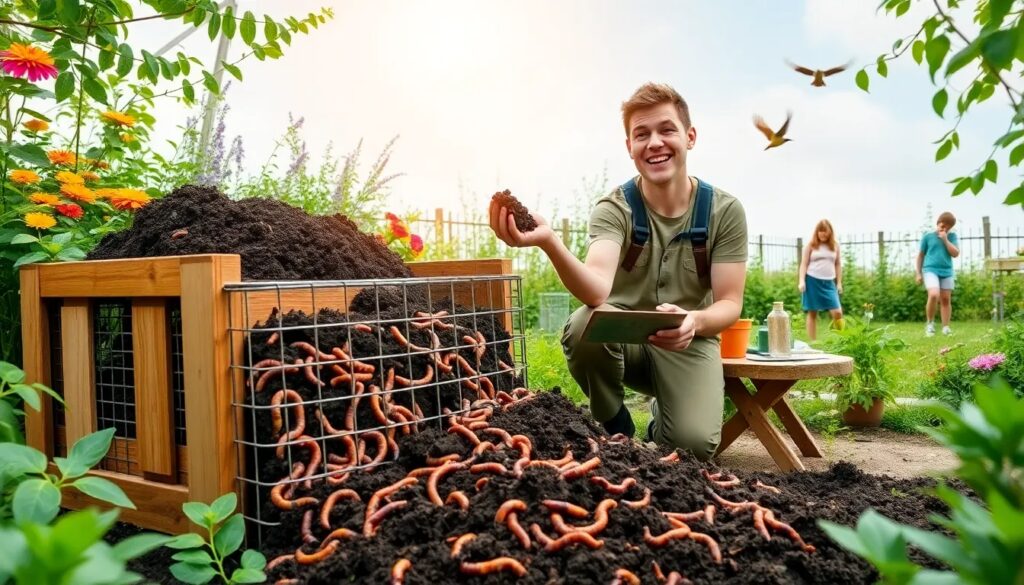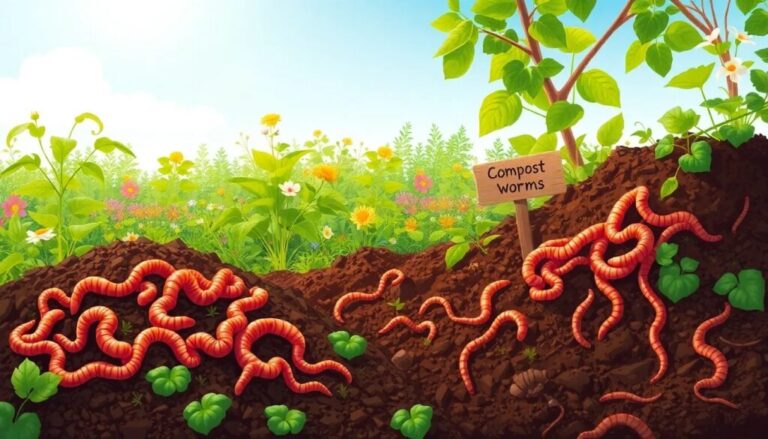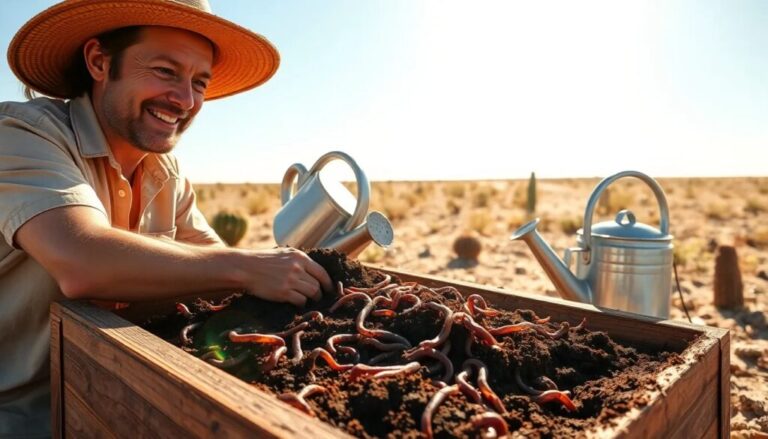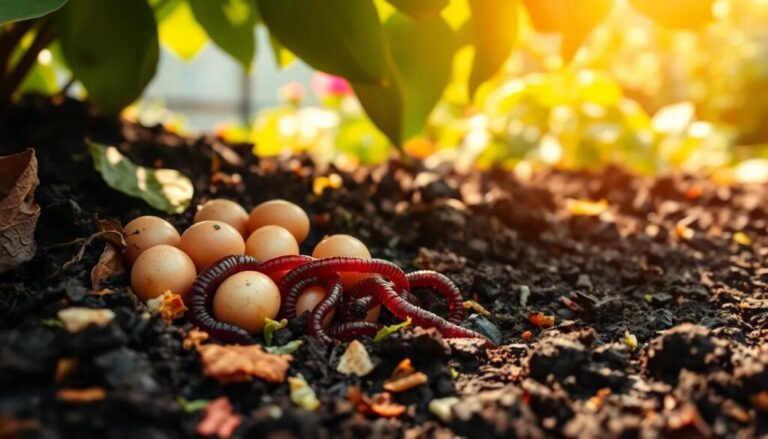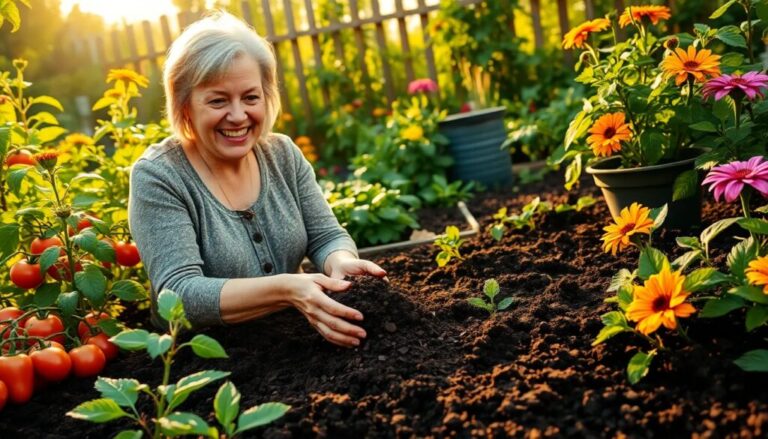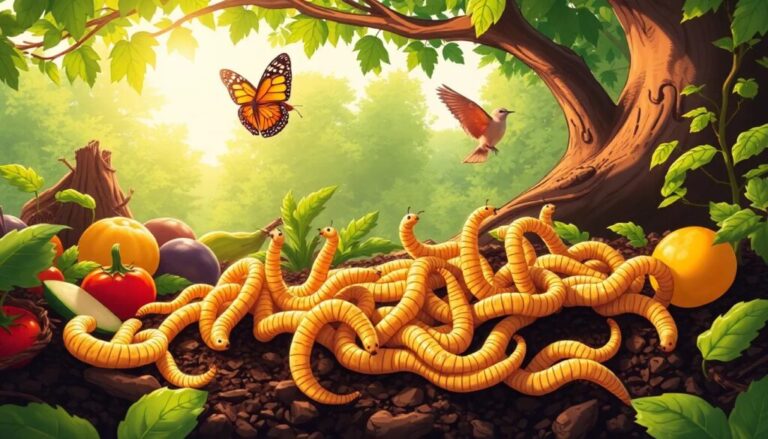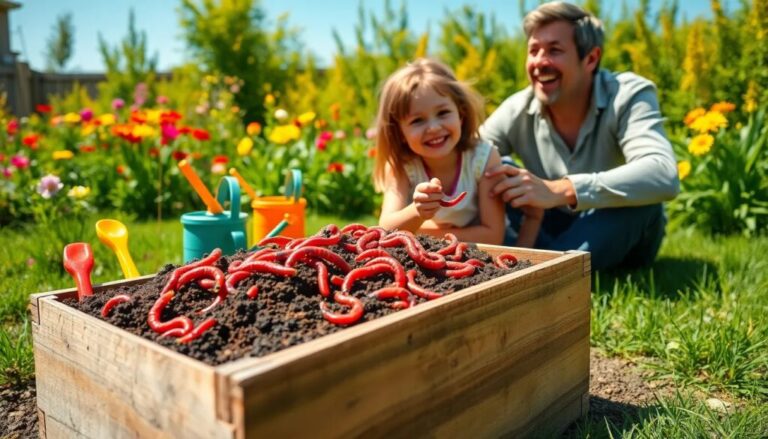Starting with worm composting? Here are 5 mistakes to avoid
Worm composting is an excellent way to recycle organic waste while enriching your soil. However, many beginners fall into common pitfalls that hinder their success. Understanding these mistakes can help you create a thriving worm bin.
This article will guide you through the essential mistakes to avoid, such as improper feeding and moisture management, ensuring that your composting journey is fruitful.
What are the key mistakes to avoid when starting with worm composting?
One of the biggest challenges for those starting with worm composting is knowing what to do and what not to do. Here are some key mistakes to steer clear of:
- Overfeeding your worms: Many beginners think that more food translates to more compost. In reality, overfeeding can lead to odors and unhealthy conditions.
- Neglecting temperature control: Worms thrive in a specific temperature range, typically between 55°F and 77°F. Extreme temperatures can harm or kill them.
- Ignoring moisture levels: Too little or too much moisture can create problems in your worm bin. Finding the right balance is crucial.
By paying attention to these issues, you can significantly enhance your chances of successful vermicomposting.
How can you properly feed your worms for successful composting?
Feeding your worms correctly is vital for a healthy compost bin. Here are some tips to ensure they get the nutrients they need:
- Feed small amounts regularly rather than overwhelming them with large quantities at once.
- Chop or shred food scraps: Smaller pieces break down faster and are easier for worms to consume.
- Avoid feeding them acidic or spicy foods as these can harm your worms.
Consistent feeding habits are essential for keeping your worms happy and active, ultimately leading to better compost.
What moisture levels are ideal for worm composting?
Maintaining the right moisture level in your worm bin is crucial. Worms need a damp environment to thrive, but too much moisture can lead to problems.
A good rule of thumb is to aim for a moisture content similar to that of a wrung-out sponge. Here are some tips:
- Regularly check the moisture level by squeezing a handful of bedding; it should feel moist but not dripping wet.
- If your bin becomes too wet, add dry bedding materials like shredded newspaper or cardboard to absorb excess moisture.
- Conversely, if it’s too dry, you can sprinkle water or add damp kitchen scraps to increase moisture.
By carefully managing moisture levels, you can create a suitable environment for your worms.
Why is it important to balance the pH in your worm bin?
The pH level in your worm bin affects the health of your worms and the efficiency of composting. Worms prefer a neutral pH level, around 6.5 to 7.5.
Here are some reasons why balancing pH is essential:
- Too acidic or alkaline conditions can stress worms and reduce their activity.
- A balanced pH promotes the growth of beneficial microbes that help break down organic matter.
- Regularly testing the pH can help you adjust conditions promptly before they become harmful.
Balancing the pH ensures a thriving environment for your worms and contributes to better compost quality.
What food types should you avoid when composting with worms?
Not all food scraps are suitable for worm composting. Certain types of foods can create problems in your bin:
- Avoid feeding your worms meat, dairy, and oils as these can lead to odors and attract pests.
- Citrus fruits, while nutritious, should be given sparingly, as they can alter the pH and cause distress.
- Processed foods may contain preservatives that are harmful to worms.
By being selective about what you feed your worms, you can maintain a healthy and efficient worm composting system.
How to create the best environment for your worm bin?
Creating an optimal environment is crucial for the health of your worms. Here are some essential practices:
- Use the right type of bedding, such as shredded newspaper, cardboard, or coconut coir, to provide a comfortable habitat.
- Maintain a consistent temperature and avoid placing the bin in direct sunlight or extreme cold.
- Ensure proper aeration by turning the bedding regularly to prevent compaction and promote airflow.
Implementing these practices will establish a thriving environment for your composting worms.
What are the benefits of worm composting for gardeners?
Worm composting offers numerous benefits for gardeners, enhancing soil quality and plant health:
- Improves soil structure: Worm castings help aerate the soil and promote root growth.
- Increases nutrient availability, leading to healthier plants and higher yields.
- Helps in retaining moisture in the soil, reducing the need for frequent watering.
For gardeners, understanding the benefits of worm composting can lead to more sustainable practices and better results in their gardening endeavors.
If you’re eager to learn more about starting with worm composting, check out this informative video:
Embracing worm composting not only helps reduce waste but also enriches your garden soil effectively. By avoiding common mistakes and implementing best practices, you’re on your way to a successful composting experience.

